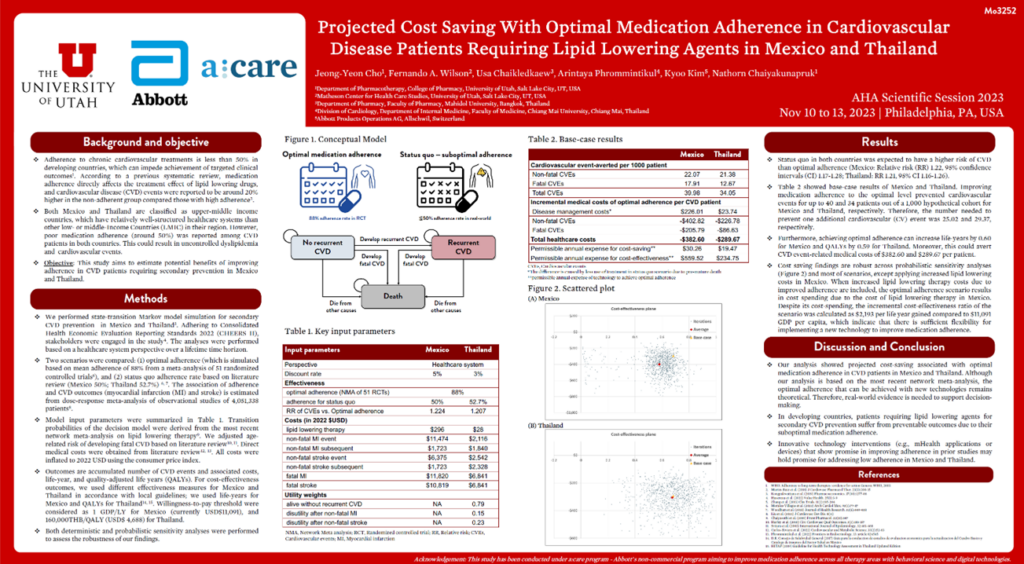A:CARE HEOR study: improving medication adherence leads to better patient prognosis and significant cost saving in Thailand and Mexico
The initial findings from the a:care Health Economics and Outcomes Research (HEOR) study were recently showcased at both the American Heart Association (AHA) Congress and the International Society for Pharmacoeconomics and Outcomes Research (ISPOR) Congress.
Medication adherence is crucial for predicting cardiovascular disease (CVD) outcomes in patients requiring secondary prevention. In developing countries, adherence to chronic cardiovascular treatments is less than 50%, which hinders the achievement of targeted clinical outcomes1. The first a:care Health Economics and Outcomes Research (HEOR) study aimed to estimate the potential benefits of improving adherence to lipid-lowering agents in CVD patients requiring secondary prevention.

The authors conducted a state-transition Markov model simulation for secondary CVD prevention in Mexico and Thailand. They demonstrated that achieving optimal adherence could increase life-years by 0.60 and 0.84, and QALYs (Quality-Adjusted Life Years) by 0.59 and 0.68 in Mexico and Thailand, respectively. Furthermore, this could prevent CV (cardiovascular) event-related medical costs of $614 in Mexico and $313 in Thailand. When including the costs of lipid-lowering therapy, the optimal adherence scenario results in cost savings of $418 in Mexico and $293 in Thailand. These findings of cost savings were consistent across all sensitivity analyses1.
In developing countries, patients who require lipid-lowering agents for secondary CVD prevention often experience preventable outcomes due to suboptimal medication adherence. Therefore, it is recommended to explore various methods to improve adherence, which could lead to cost savings and the achievement of therapeutic goals1.













